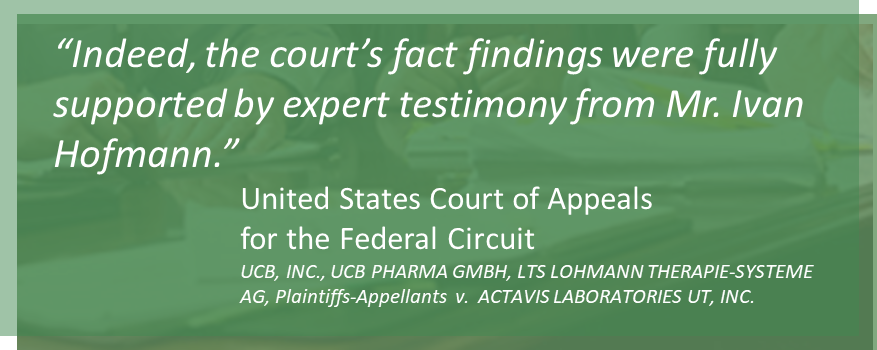Gleason IP News & Updates
Federal Circuit Affirms the Use of Blocking Patents in a Commercial Success Inquiry
In the patent litigation between UCB and Actavis related to the reformulated Neupro® patch, the Federal Circuit affirmed the District Court’s decision regarding Ivan Hofmann’s testimony related to blocking patents that dissuaded competitors from developing a rotigotine patch that practiced the claimed inventions of the patent-in-suit.
Furthermore, the Federal Circuit agreed with Mr. Hofmann’s testimony that the driver of the reformulated Neupro® patch was the safety and efficacy of a transdermal patch with rotigotine in a known weight ratio that was already known in the prior art. In its opinion the Federal Circuit noted “the court cites to Mr. Hofmann, Actavis’s expert, who testified that ‘what’s really driving the [relaunch] sales are the safety and efficacy of a transdermal patch with rotigotine in a known weight ratio that was already known.”
The Federal Circuit concluded that the District Court did not clearly err in finding that the evidence of commercial success is weak.
Link to review the full opinion.

Judge Andrews Rules on the Lack of Nexus and Failed Copying Arguments
A recent ruling in Delaware concluded that Purdue had failed to support its assertion of commercial success associated with abuse-deterrent OxyContin® patents. Judge Andrews’ opinion noted that testimony of Ivan Hofmann highlighted a lack of nexus as the reformulation replaced the original formulation and sales were not related to alleged inventions of the Patents-in-Suit, but rather “Purdue’s existing monopoly.”
In addition, Judge Andrews rejected Purdue’s argument that Accord’s choice to file an ANDA provided any evidence of nonobviousness stating that he was “completely unpersuaded” by Purdue’s argument which “requires numerous unfounded assumptions.”
Link to review the full opinion.

